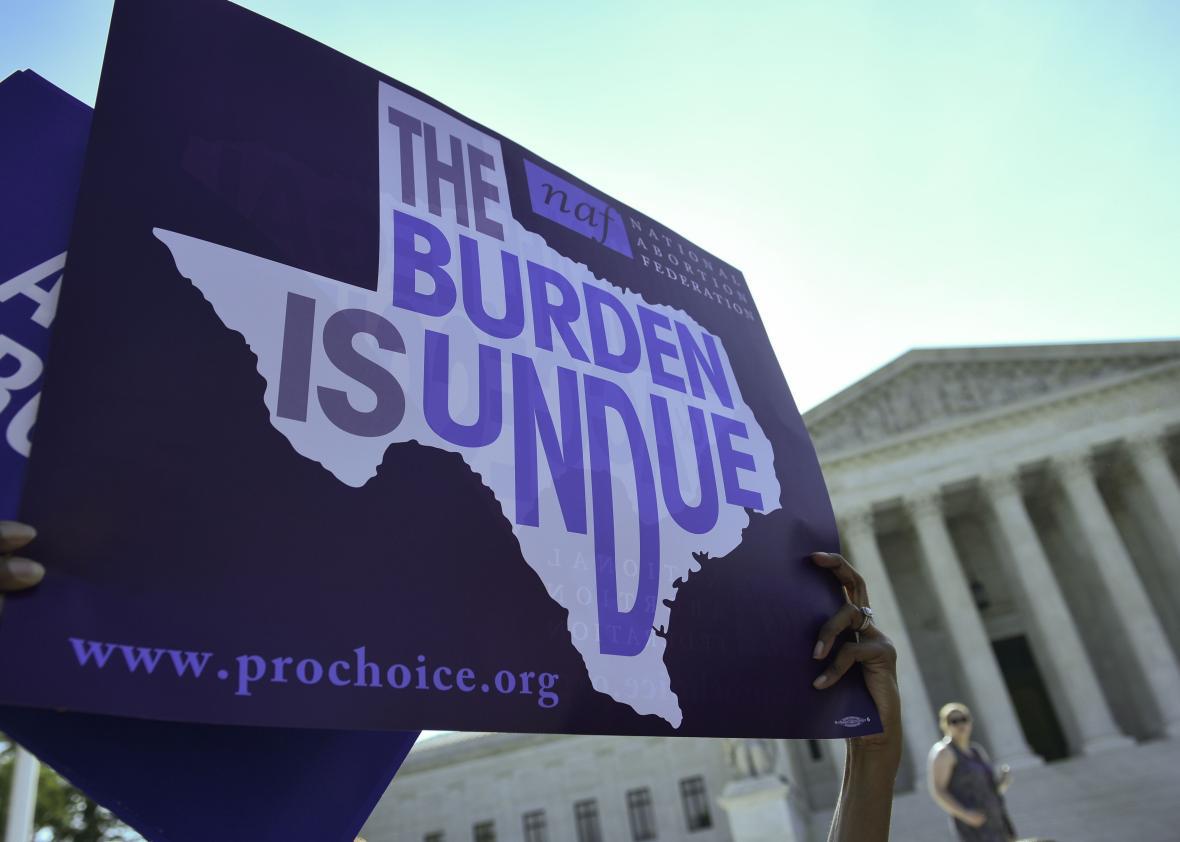One of the stupidest anti-abortion rules in the country—and that’s saying a lot—has been temporarily blocked by a federal judge. A Texas rule requiring the fetal remains from an abortion or miscarriage to be buried or cremated instead of disposed of in a medical landfill was set to go into effect on Dec. 19—next Monday—despite widespread criticism. The Center for Reproductive Rights filed a lawsuit earlier this week claiming that the rule uses many of the same tactics that were deemed unconstitutional by the U.S. Supreme Court’s ruling in Whole Woman’s Health v. Hellerstedt last summer. The fetal remains rule “does nothing to improve public health or safety, as DSHS [the Department of State Health Services] alleges; rather, it is a pretext for restricting abortion access,” the lawsuit states.
On Thursday, U.S. District Court Judge Sam Sparks blocked the rule from going into effect pending testimony and his ultimate ruling, which he plans to make by Jan. 6. This means that Texas women who have abortions or miscarriages in medical facilities in the next three weeks will not face the expense, hassle, and indignity of being forced to cremate or bury their medical waste instead of allowing doctors to dispose of it safely and efficiently. (The state’s Health and Human Services Commission has said the rule will not apply to miscarriages and medication abortions that take place at home, which is a good thing. Can you imagine trying to bury or cremate your menstrual blood?)
In addition to insulting women—and, frankly, everyone—with the notion that tissue from a first trimester abortion is equivalent in moral status to the body of a deceased person, the bill would inconvenience doctors (who would have to arrange for special treatment of fetal remains) and funeral directors (who would have to issue death certificates for fetuses aborted or miscarried after 20 weeks). Here’s hoping Judge Sparks sees the rule for what it is—a unconstitutional attempt to reduce abortion access without any medical rationale whatsoever—and forces the anti-abortion right in Texas to abandon its latest attempt to stand between women and the medical care they need.
